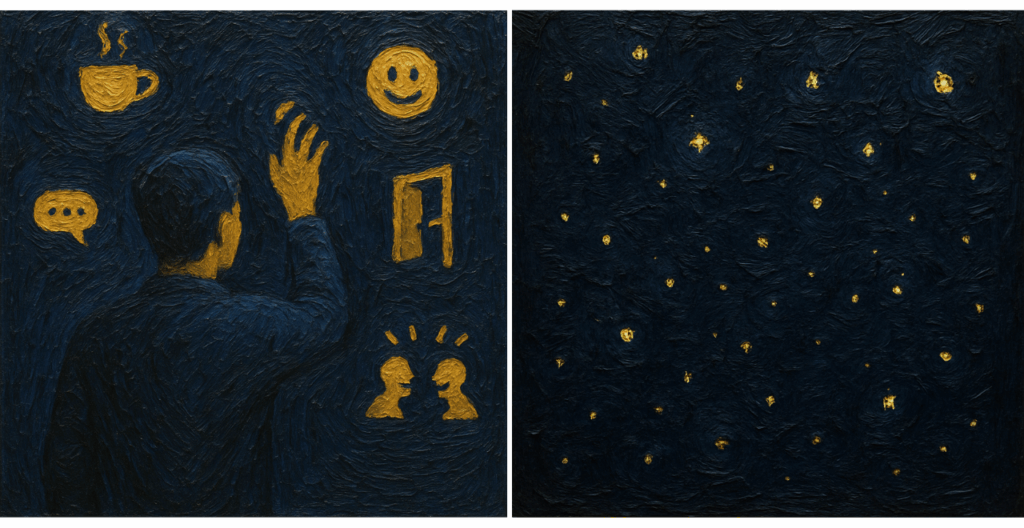
You probably remember the last thing that went wrong today. The meeting that ran long, the text you regretted sending, the task you forgot. But can you remember three things that went right?
That’s because your brain is designed to hunt for problems. It’s a feature that helps us survive, but can also make us miserable.
Fortunately, there’s a simple way to interrupt your brain’s default threat-scanning mode: deliberately noticing what’s working. Not in a forced positive-thinking way, but as a practice of paying attention differently.
Research shows that gratitude activates brain regions linked to dopamine and serotonin, the neurotransmitters that regulate happiness and motivation. It also reduces activity in the amygdala, the part of the brain responsible for stress and fear responses.
Other studies have found that people who regularly write about things they’re grateful for report better sleep, stronger immune function, and more optimism about their future.
Gratitude, in essence, helps your mind shift from threat detection to positive pattern recognition. Noticing what works well instead of scanning for threats doesn’t just make you feel better in the moment – it rewires how you respond to the world.
And you can train this kind of attention. Here are three practical ways to start:
1. Fall asleep with gratitude. When you’re lying awake at 2am, go through the alphabet and name one thing you’re grateful for with each letter. “A” for air conditioning, “B” for your best friend, “C” for coffee… This simple practice will give your racing mind something positive to anchor your attention to.
2. Start a gratitude jar. Keep a jar and some paper scraps somewhere visible (maybe on your desk). When something good happens, write it down and drop it in. On rough days, pull a few out and read them. You’ll be surprised what you forgot about – small wins that felt insignificant at the time but add up to proof that good things do happen.
3. Experiment with thank-you messages. Block 15 minutes in your calendar each week to send quick thank-you notes. Email a colleague who helped you, text a friend who made you laugh, message a podcast host whose episode shifted your thinking or an author whose book you enjoyed. Keep it short and specific: “That thing you said about X really helped me with Y.” I love this one because you’re also helping another human feel better.
Your brain will always find problems – that’s its job. But you don’t need life to be perfect to start noticing what’s working. Actively look for what went right, and find ways to actively engage with and share the good in your life.
Tiny Experiment of the Week
Ready to put these ideas into practice? Try this week’s tiny experiment to help you slow down and notice what’s already good.
I will [send one short thank-you message to someone each day] for [5 days]
Expressing gratitude strengthens your sense of connection and boosts positive emotions for both you and the person you reach out to. It doesn’t have to be long: a quick text, email, or voice note works. Want to dig deeper? Get your copy of Tiny Experiments.
Until next week, stay curious!
Anne-Laure.
